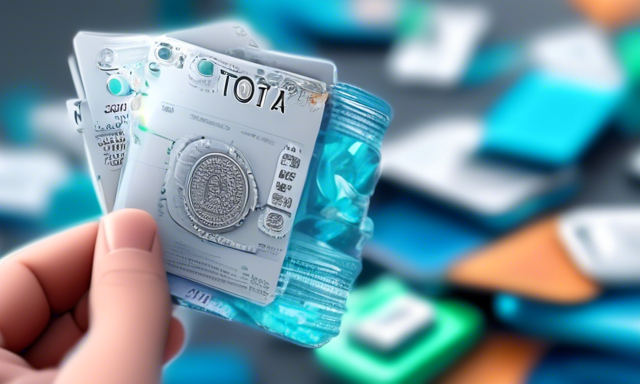Revolutionizing Plastic Recycling with Digital Product Passports 🔄
The collaboration between IOTA Foundation and Digimarc has introduced Digital Product Passports (DPPs) to revolutionize plastic recycling by enhancing transparency and promoting a circular economy. This initiative meticulously documents the lifecycle of plastic waste, offering a sustainable solution to environmental challenges.
The Impact of IOTA Technology on Circular Economy 🌐
With a focus on converting farm plastic waste into bioplastics used in consumer products, IOTA Foundation and Digimarc are leveraging distributed ledger technology (DLT) to monitor the recycling journey of plastics. This step not only facilitates the transformation of plastic waste into biodegradable products but also addresses the low recycling rates of plastic waste globally.
- Enhancing circular economy practices
- Fostering transparency in plastic recycling
- Promoting sustainable use of resources
Introducing a New Era of Transparency with Digital Product Passports 📄
The Digital Product Passport (DPP) for Plastics prototype solution offers comprehensive data on the lifecycle of plastic waste, recording its transformation from disposal to the creation of new products. By utilizing the GS1 EPCIS 2.0 standard and storing data on the IOTA ledger, this solution ensures verifiable claims about the origin and processing of plastic waste.
Key Stages in Implementing the DPP for Plastics 🔄
The implementation of the DPP solution involves multiple stages, starting from the production of waste on farms using plastic mulching films for crop protection. The process continues with the collection of used plastic, tracking its journey to the recycling facility, and eventually transforming it into raw materials for new products.
- Recording waste production data
- Tracking recycling process through authorized waste managers
- Transforming recycled plastics into new eco-friendly products
Building Trust and Transparency in Plastic Recycling Processes 🛡️
Utilizing the EBSI Trust Framework and GS1 EPCIS 2.0 standards, the DPP solution ensures the verification of identities and relationships of all stakeholders involved in the plastic recycling process. Each product is assigned a unique Digital Link accessible via QR code, enabling consumers to verify its provenance and sustainability.
- Ensuring transparency in the supply chain
- Empowering consumers with product information
- Promoting trust among stakeholders
Unlocking Sustainable Practices and Environmental Impact Reduction 🌿
By deploying blockchain technology, IOTA and Digimarc’s DPP solution for plastics offer a sustainable and environmentally friendly approach to plastic recycling. This initiative not only supports a circular economy but also fosters collaboration among stakeholders to drive long-term sustainability goals.
Hot Take: Embrace Transparency and Sustainability in Plastic Recycling ♻️
As a crypto enthusiast, you have the power to advocate for transparency and sustainability in plastic recycling by supporting innovations like the Digital Product Passports. By embracing these technological advancements, you contribute to a greener and more sustainable future for generations to come.





 By
By
 By
By
 By
By
 By
By

 By
By